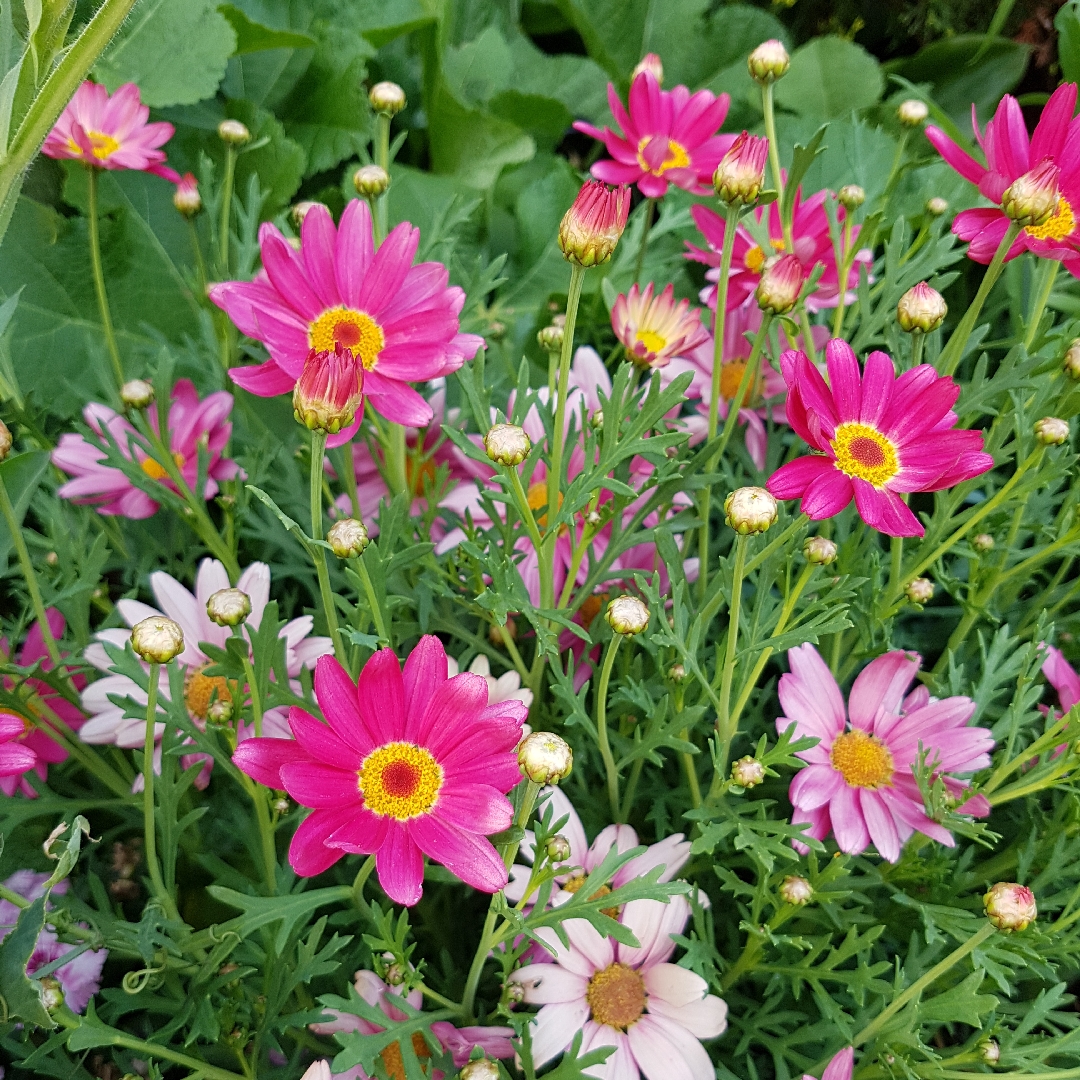
Argyranthemum frutescens 'Super Chameleon'
Marguerite 'Super Chameleon'
Argyranthemum is commonly called marguerite, marguerite daisy or dill daisy and is a genus of flowering plants belonging to the family Asteraceae. Varieties and cultivars are widely sold as garden plants, for summer bedding or containers. Single or double daisy-like flowers coloured white, pink, yellow or purple throughout the summer months. They are half-hardy, and can be grown from seed or cuttings, or purchased as young plants to be planted out after all danger of frost has passed.'Super Chameleon' has d 'super size' yellow flowers that turn to hot pink as they age
Contributed by @KathyB
-
Full sun to partial shade
-
Occasional watering
-
A little frost hardy: 32F (0°C)
-
Moist and free draining
Common name
Marguerite 'Super Chameleon'
Latin name
Argyranthemum frutescens 'Super Chameleon'
type
Half hardy perennial
family
Asteraceae
ph
5.5 - 7.5 Acid - Neutral
Plant & bloom calendar
-
Best time to plant
full grown dimensions
 0.70 M
0.60 M
0.70 M
0.60 M
Argyranthemum frutescens 'Super Chameleon'
Argyranthemum is commonly called marguerite, marguerite daisy or dill daisy and is a genus of flowering plants belonging to the family Asteraceae. Varieties and cultivars are widely sold as garden plants, for summer bedding or containers. Single or double daisy-like flowers coloured white, pink, yellow or purple throughout the summer months. They are half-hardy, and can be grown from seed or cuttings, or purchased as young plants to be planted out after all danger of frost has passed.'Super Chameleon' has d 'super size' yellow flowers that turn to hot pink as they age
Planting
From Late Spring TO Late Spring
Marguerites tend to be considered tender perennials in the UK and other temperate zones, though growers say they can last through a mild winter. Therefore it is recommended that plants are either treated as summer bedding or, if larger, brought into the cool greenhouse or conservatory during the winter months. Plant out in full sun and to be planted in well-drained, poor to moderately-fertile soil. However, the species A. frutescens is said to prefer partial shade and moist soil. Young plants to be planted out after all danger of frost has passed.








